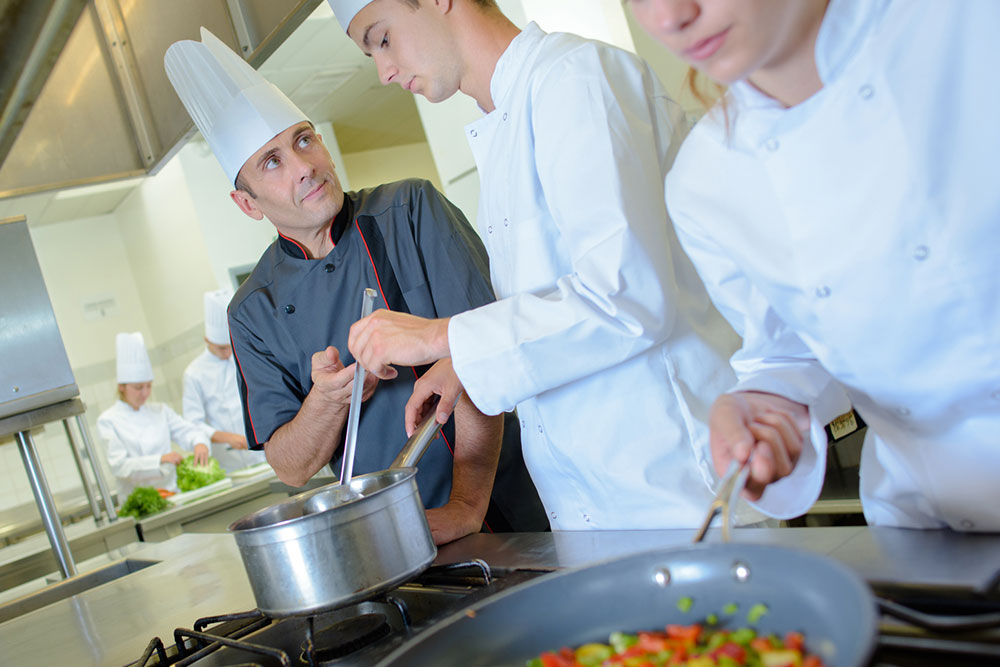Ultimate Guide to Selecting the Perfect Culinary School for Your Career Goals
Choosing the right culinary school is crucial for aspiring chefs. This comprehensive guide highlights essential factors such as practical training, faculty expertise, alumni success, campus environment, costs, and facilities. Selecting an institution that balances hands-on experience with theoretical knowledge and industry connections can significantly enhance your culinary career prospects. Explore key considerations for making an informed decision that aligns with your goals, ensuring you receive quality education, valuable skills, and a launchpad into the competitive culinary world.

Ultimate Guide to Selecting the Perfect Culinary School for Your Career Goals
Starting a rewarding career in the culinary arts begins with choosing the right culinary education institution. Aspiring chefs often face the dilemma of whether hands-on experience outweighs classroom learning or vice versa. However, the most effective path combines both practical training and theoretical knowledge. To make an informed decision, students must evaluate several critical factors that align with their aspirations and personal circumstances. This comprehensive guide explores essential aspects to consider when selecting a culinary school to ensure you set a solid foundation for your future culinary endeavors.
Extensive Practical Training Opportunities
Hands-on training is the cornerstone of culinary education. It provides students with real-world skills necessary to excel in high-pressure kitchen environments. Institutions that emphasize extensive practical training typically feature advanced on-campus kitchens, restaurant simulations, and internship opportunities in collaborative partnerships with local restaurants. Such immersive experiences enable students to translate classroom theory into practice, enhancing their confidence and competence. Research indicates that culinary students who engage in consistent practical activities tend to outperform their peers in job readiness and skill application. When assessing schools, investigate the availability and quality of their training facilities—look for well-equipped cooking labs, dedicated restaurants, and workshops that mimic industry standards. These facilities should host experienced instructors who can mentor students through complex techniques, new cuisine styles, and innovative culinary trends.
Additionally, ensure the curriculum includes a variety of specialization options—whether you're interested in pastry arts, international cuisine, or sustainable cooking. Programs tailored to specific culinary interests enable students to develop expert-level skills in their preferred niche. Not all culinary schools offer the same level of practical exposure, so align your choice with your long-term professional goals. A school that emphasizes industry connections, such as internships and apprenticeships, provides invaluable insights into the culinary business world, boosting employability post-graduation.
Qualified and Experienced Faculty
The quality of instructors significantly impacts your educational experience. Seek schools staffed by seasoned chefs and culinary educators with extensive industry experience. Diverse faculty members who bring different cooking philosophies, techniques, and cultural backgrounds enrich your learning environment. Learning from professionals who have worked in reputable restaurants or own culinary businesses equips students with practical knowledge and industry insights that go beyond textbook theory. Faculty mentorship can also open doors for networking, internships, and job opportunities.
Alumni Success and Feedback
Investigate the career trajectories of alumni from potential schools. A high employment rate and notable alumni success stories are indicators of a program’s effectiveness. Reach out to former students through social media or alumni networks to learn about their experiences. Their insights regarding curriculum relevance, faculty support, practical training quality, and overall satisfaction can guide your decision-making process. A school with strong alumni ties indicates a meaningful education that prepares students to thrive in diverse culinary settings.
Learning Environment and Campus Culture
A positive, inclusive, and motivating campus environment fosters better learning and personal growth. Look for institutions that emphasize community, collaboration, and creativity. A supportive environment helps students overcome challenges, build confidence, and develop leadership qualities vital in the culinary industry. Campus safety, student support services, and extracurricular activities also contribute to a well-rounded educational experience.
Cost Considerations and Financial Support
Tuition fees vary widely among culinary schools, and affordability is a critical factor. Given that starting salaries for culinary professionals are often modest, it’s essential to balance quality education with manageable costs. Research options that offer scholarships, financial aid, and payment plans. Accredited programs, such as those recognized by the American Culinary Federation, often uphold high standards and provide better value. Investing in a reputable school with reasonable costs can reduce future debt and improve your return on investment, especially when combined with strong industry connections for employment opportunities.
Facilities and Equipment Quality
Modern, well-maintained kitchens and state-of-the-art culinary tools significantly enhance your learning process. Schools that invest in cutting-edge equipment and contemporary facilities prepare students for the realities of professional kitchens. This exposure ensures familiarity with current industry standards, safety protocols, and advanced culinary technology. While some excellent training can occur in budget-friendly environments, top-tier institutions prioritize facility quality to deliver comprehensive practical training that aligns with current culinary trends and expectations.
Many leading culinary institutions offer a balanced blend of academic coursework and extensive practical training, equipping graduates with both knowledge and experience. Notable examples include renowned universities such as New York University, Drexel University, University of Cincinnati, and Mississippi State University, each recognized for their commitment to culinary excellence. When choosing a culinary school, consider visiting campuses, reviewing their facilities, and speaking with faculty and current students to get a thorough understanding of what they offer.




